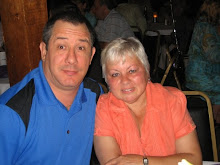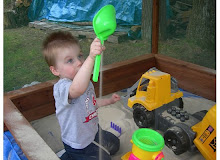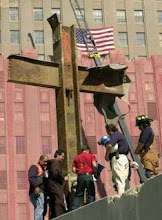The Holy Fire has been a known custom since the first centuries of Christianity. The custom of Great Antiquity, is historically recorded and describes the celebration on Great and Holy Saturday, at the very place of the burial and Resurrection of Christ the Savior. The account most detailed was written in Greek in 1122, and this is the one I've chosen to replicate here.
St. Gregory of Nyssa writes: "And when he saw them (the shroud and the cloth), Peter believed, for the Tomb was filled with light, even while it was still night; the interior of the Tomb was visible in two-fold manner: both to the senses and to the spirit" (On the Resurrection of Christ. Sermon II).
"This was the inspiration for the institution in the services of our Church (most certainly, in accordance with the apostolic tradition) of the custom of holding candles during the celebration of the Feast of Pascha." by Archimandrite Callistos "Undoubtedly, the rite where in the presiding priest of a church gives lit candles to the people during the singing of "Come, receive the light from the unsetting Light and greet Christ risen from the dead," which has been handed down to all the Orthodox Churches, a custom of great antiquity.
The typicon of the Church of the Resurrection, 1122
"...And at the second hour of the holy day (Great Saturday) the myrrh-bearers come and begin to fill the lamps and get them ready in all the all-holy and life-giving Sepulchre in the presence of the Patriarch, arch-deacons, the second deacon, the paramonarios, three other deacons, and three chanters. And while the myrrh-bearers are about their duties the canon is sung together with the office of the hours. And when the myrrh-bearers have finished filling and preparing the lamps, the Pariarch seals the Holy Sepulchre and takes the keys with him, and then all the lamps in the church are extinguished. The Partiarch goes with the clergy all in white vestments into the Church of the Holy Resurrection, without igniting the lamps and, without a censer, quietly begins Vespers behind the Holy Sepulchre...Immediately after the end of the readings of the prophecies the Patriarch ascends the steps of the sacred altar and entrusts the censing to the metropolitan, the bishops and the presbyters, and they begin to cense - he himself, the hierarchs, and the priests with him, censing the church outside the Holy Sepulchre and going around it three times. The Sepulchre is then closed. Then they go out and, after censing the lower level, go up to Holy Golgotha also to cense it and the Holy Garden, and the church of St. Constantine, and the Holy Prison until they come to the doors of (the Church of) the Holy Resurrection, to the so-called 'Door of the Myrr-bearers,' Then the sub-deacons take the censers from the hierarchs and the priests and all of them go up the sacred steps. The Patriarch begins to say slowly and without ceasing, 'Lord, have mercy.' when the Patriarch comes down the steps, the archdeacon and protodeacon support his arms on both sides; before them goes the sakkelarious, while the paramonarios and kastrinicios follow after. Then the Patriarch falls with his face to the ground opposite the steps of the altar and tearfully prays for the ignorances of the people and extends his hands aloft. This he does three times , and those with him also do likewise. The people without interruption exclaim: 'Lord, have mercy,' when the Patriarch and those with him go into the Holy Sepulchre, they prostrate themselves three times and pray for themselves and for the people, and the Patriarch then takes a light from the Holy Fire and gives it to the archdeacon, and the archdeacon to the people; thereafter the Patriarch goes out and those with him, singing the verse: 'Shine, shine, O new Jerusalem'..."
The two are still sung in our Churches even to this very day. One Holy Saturday, "During the first hour on Great and Holy Saturday one of the sultans of Bagdad came hither with the local ruler, filled with raging fury, and went into the narthex. Immediately, threatening and malicious messengers announced his presence to Archbishop Christodoulos and led him to the narthex. When the God-pleasing and very correct archbishop arrived, the menacing and delirious ruler said: 'I do not allow you, O Archbishop, to celebrate the festival today; it is for this reason that I have come, for by creating this celebrated miracle through means of sorcery you have filled all Syria with the faith of the Christians and have undermined our way of life and almost converted (this region) to Romanism (Christianity).' The God-pleasing archbishop, however, replied with a meek voice: 'If you have even witnessed this miracle only once or twice, and not a thousand times been reassured of it in fact, then it would have been easier for us to endure your words that this is accomplished through the art of sorcery; but since even during the time of the previous archbishop you ordered iron to be placed in the lamp located at the Holy Sepulchre instead of wicks and we saw how by the will of God it suddenly burst into flame like wax; then how long do you intend to tyrannize us who have seen the unusual?'
Then a tax a seven thousand gold pieces was demanded of the archbishop, "and if he did not receive them, then he would in no way permit him to celebrate the holy and universal feast of the Resurrection of Christ." "At being in such an inescapable position, the archbishop exhorted the murderers to deliver him from this present life with the sword, for this seemed a beneficial way to be freed of their hostility. But the Lord, who provides in difficult situations and is powerful in times of weakness, resolved even that contrivance: the secretaries provided two thousand gold pieces and vouched for the archbishop in remittance of the remaining five thousand, and thus put an end to the malicious perfidy of the criminal ruler. "When the archbishop was being harassed in the narthex, the Lord of miracles, in accordance with His unattainable and indomitable power, filled with Divine Light two of the tri-form lamps which were hanging in the place where, they say, the revered Body of our Lord and God was anointed after being taken down from the Cross. This miracle was proclaimed in the narthex and instantly the mixed crowd of Christian people and pagan hagarenes ran into the holy church of God: the Orthodox with intense love and flaming faith, and the godless Hagarenes with murderous thoughts and destructive intentions, in case anyone was found holding openly a burning candle, of killing him in the church itself with the swords and spears with which they were armed. The most wise archbishop and his clergy hastened to the Holy Sepulchre of the Lord together with the Hagarenes. Looking in and seeing that the radiance of the Divine Light had not yet appeared there, together with the Hagarenes he locked the Divine Tomb and, lifting his Mosaic hands high toward the east, he prayed without ceasing with the Christian people to the God of all things. At about the sixth hour of the day when he looked at the Divine Tomb of the Saviour, he saw the divine appearance of the Light since through the Chapel of the Angel he could enter the door. Seizing the opportunity to distribute this Light around the chandeliers found in the holy church of God, as it is customarily done, he had not yet left the Tomb when he saw the entire church of God suddenly filled with an inexpressible and divine Light, such that pious people surged from the right side to the left, some to the porticoes and others in Golgotha, and the third group to the chains hung in indication of that. All were filled with amazement at such an unexpected appearance of the Light; even the godless Hagarenes were smitten and ashamed. For they say that from the Ascention of Christ until this day, the shining Divine Light has occurred each year in one of the lamps of the Holy Sepulchre, but on that occasion the divine pouring forth of Light spread throughout the entire church, so that everyone with one voice exclaimed: 'What God is great as our God? Thou are the God Who worketh wonders!'
"At the moment, as the accursed ruler, who was standing in the section of the Catechumens with a flashing yataghan in his hand, looked into the church something unusual and miraculous occurred. By divine economy, it happened that the largest lamp, which exceeded in the size a kratir and which hung before his very eyes, suddenly was filled with the Divine Light, despite the fact that there was not even a wick in it and it was empty of water and oil. In the face of such a miraculous spectacle the destructive and unfortunate ruler was struck dumb; and he openly said to all that he saw a hand like fire and that it accomplished all these wondrous miracles."
"Let us not appear to the majority of people as a false miracle what was accomplished with the Cross of one of the drakondias (indeed, I do not entrust my sinful conscience to anyone but the Sleepless Eye, which tests us in the depths of our thoughts). For over one of the drakondias standing on the right side of the holy church of God, on the cross which was above it, there appeared a star, shining in its center like the sun. A little later, it divided into four parts and shone in the form of the Cross, so that all ran towards it and sang out victorious hymns to God the Arranger of our destiny. I suppose it signified that the power of your holy reign, true to God, will subdue the hateful Ishmaelite and dim the profane faith of the Hagarenes as the impure and pagan Hagareness admit. And the Lord God, Who by the Cross granted the victory for the ever-memorable among kings, Constantine, granting the same name and the same holy ethics to your reign, as this star indicates, so may He Himself now subdue them to you, strengthen and fortify you, O sovereign, over every people and arrange in you and iron kingdom! I, Nicetas, the least of priests, have written this in the year of Adam 6455 (947 A.D.)"
Reference: "Holy Pascha And The Holy Fire" compiled by: Father Demetrios Serfes, Priest
Keto Simple
5 years ago



























No comments:
Post a Comment